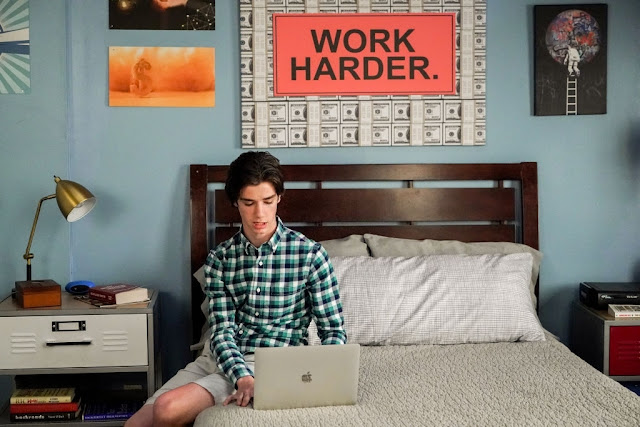An out-of-work travel agent whose mortgage payments were deferred now worries about losing her house. A couple can’t pay myriad bills after the extra $600 unemployment benefit ran out. An idled maintenance supervisor has fallen further behind on rent.
USA TODAY recently checked back in with some of the dozens of Americans who spoke to us earlier this year after losing jobs because of the COVID-19 pandemic and found that many have edged closer to financial calamity.
Much has changed since we began chronicling their stories. States have been reopening their economies in phases, and the federal government sent most Americans $1,200 stimulus checks to help keep them afloat.
At the same time, coronavirus spikes across the country led many states to pause or roll back their reopening plans. And a $600 federal supplement to weekly unemployment benefits expired in late July, with Congress still deadlocked over renewing at least some of the aid.
Overall, the nation has recovered slightly more than half the 22.2 million jobs shed in March and April as businesses restarted and brought back many furloughed workers. But job growth has slowed substantially in the past few months. Some businesses have closed for good. And recouping the remaining 10.8 million lost jobs is expected to take far longer.
While many of those whose struggles USA TODAY documented are now worse off, some have finally landed full- or part-time jobs, easing their distress or providing hope.
Here are their stories:
'I can't do it'
Julie Antoine’s struggles to stay afloat have only grown direr as she copes with the ups and downs of federal assistance and a financial support base that becomes wobblier by the month. Antoine, 59, lost her job as a corporate travel agent in mid-March after a nearly 40-year career as business trips became a thing of the past.
The Gainesville, Florida, resident turned to friends and family to payphone, internet, and cable bills until she finally received unemployment benefits in the spring, including the extra $600 a week from the federal government.
When she spoke to USA TODAY in August, the $600 had expired, forcing her to make do with $275 in state weekly benefits and again rely on friends and relatives.
In mid-August, President Donald Trump signed an executive order reinstating half the $600 benefit and Antoine received an additional $1,200, covering four weeks of payments, the following month. But in late September, even Antoine’s regular state benefits expired. Her certification for food stamps also ran out.
She has applied for extensions to both programs and expects to be approved but meanwhile has no income. As for the help from friends and family, “That has kind of dwindled down,” the Saint Lucia native says. “You’re going from helping somebody to becoming a dependent.”
Fortunately, her bills are paid through the end of October and she stocked up on groceries last month by taking advantage of discounts. But she’s in a race against time: Antoine hopes her unemployment benefits and food stamps start flowing again before her bills are due at the end of the month.
She has continued to do without the occasional takeout dinners and home furnishing purchases she enjoyed when the $600 federal aid was coming in. Recently, she canceled her $5-a-month Amazon music subscription.
Even if the government assistance is reinstated, Antoine worries about the future. The state jobless benefits are set to expire permanently in December. Meanwhile, a 12-month deferral of her $1,600 monthly mortgage payment ends in February.
“If I don’t get a job between now and December, I will be put out of my house,” she says.
Recently, her heart rate spiked while she was sitting at her desk, requiring a trip to the hospital emergency room.
“It is emotionally taxing,” she says.
Antoine says she has steadily applied for travel agent jobs, but “nothing has come through.”
Back to square one
For Eleanore Fernandez, of Milpitas, California, spring was tough and the fall has felt like a reprise after some summer relief.
When she spoke to USA TODAY last spring in the early days of the pandemic, Fernandez had been laid off from her job at a catering company while her husband lost his freelance jobs doing sound production. To save money, the couple and their 13-year-old daughter ate less meat, clicked off lights to lower the electricity bill, and canceled their HBO subscription.
Since then, her husband has picked up some short-term contract work. Fernandez used a portion of her $1,200 stimulus check to pay bills and shore up savings. It took months for the couple to receive unemployment benefits but the aid, including the extra $600 weekly perk, briefly helped them fully cover their expenses.
But now, they're back to surviving on much leaner unemployment checks. She’s getting $900 for an entire month, while her husband gets about half that amount.
With the $600 supplement, “I could pay my full rent … and was comfortable paying utilities on time."
Now, they're paying just a quarter of their rent and juggling other bills. "I’m trying to stagger payments and also make the minimum payment on things like my water bill or even my garbage bill. Most (utility companies) have been understanding because of what’s been going on.’
“We still don’t have full cable and at this point now, I’m thinking we may have to cut it off. But I feel like that’s a first-world problem.’’
Fernandez also continues to look for work.
“It’s just hard,’’ she says. “I feel like these days because there are so many people out of work … I’m getting lowballed when we get to the point where they ask how much money I want in terms of salary. I feel like it keeps getting lower and lower.’’
Congress’s failure to deliver a new relief package is frustrating, she says.
"I just feel like they’re playing politics," she says. "I just feel like they’re a little out of touch. They’re debating over it too much and I don’t think it’s logical or rational when people need the help.’’
She hopes a change in leadership will help the nation turn the corner next year.
If Joe Biden is elected, "I’ll feel a lot better,” she says. “I just feel if people can just follow a leader who will tell them the truth and be honest with them, maybe we can get through this a lot quicker, out of this tunnel that we’re all stuck in.’’
'We're in a world of hurt'
Christopher Bolei's financial hole has gotten deeper.
When he spoke to USA TODAY in July, Bolei had been struggling to find work for months and couldn't afford rent after losing his job as a maintenance supervisor for a real estate management company. Since then, he has fallen further behind on his rent payments, and fears he’ll be evicted once rent moratoriums expire early next year.
The $8,700 in back rent Bolei owed in July has swelled to $13,000. He has been missing his nearly $3,000 monthly rent payment due to growing medical costs for his partner. She has lupus, an autoimmune disease, and faces $30,000 in medication costs this year to treat a brain injury following a car accident.
State benefits alone haven’t been enough to help him make ends meet after the $600 federal bonus went away in late July. In California, state unemployment maxes out at $450 per week.
“Congress needs to reinstate the extra $600 in unemployment aid so that jobless Americans can pay their bills before millions of us end up in the street because we’re evicted,” says Bolei, 63.
He received an extra $300 in weekly payments retroactive to Aug. 1 after Trump's executive action, but it ended after just six weeks.
Once the rent moratoriums expire in January, he’ll owe even more money, he says. Bolei is paying 25% of his rent so he won’t get evicted. But he doesn’t know how he’ll pay his full balance in a lump sum once it comes due early next year since job prospects remain scarce.
“We’re in a world of hurt,” says Bolei, adding that he feels like the federal government hasn’t done enough to help jobless Americans during the crisis.
“We’ve been abandoned and left alone,” he says. “This isn’t how America works. It's a scary time in this country.”
'I feel Ok'
In Naperville, Illinois, Rachel Metcalf, 23, is starting to see her health, and finances, emerge from the depths.
When she spoke to USA TODAY in early spring, she had been hospitalized after contracting what she believes was COVID-19. She also had been furloughed from her social media marketing job and couldn’t pay an $11,000 bill for a hospital stay that featured a COVID-19 test, which is supposed to be free. Metcalfe had launched a GoFundMe effort to cover her blood work, x-rays, and CT scan.
She still has minor chest pain symptoms, she says. But her overall health has improved.
Meanwhile, Metcalfe has gotten a part-time job as a retail assistant manager that pays $5 less an hour less than her old full-time job. But she may be able to go back to her social media job in the coming weeks as her employer’s offices reopen.
“All around, I feel OK. Not great. Not bad, but in that middle ground,” Metcalfe said. Her boyfriend moved in over the summer, which helps to offset some of her rent. She received a $1,200 stimulus check and the $600-per-week unemployment boost, which helped make ends meet.
“On my own, I would have been evicted,” Metcalfe said.
The hospital later dismissed the $11,000 bill, so she refunded the GoFundMe money to everyone who stepped in to help.
Clawing all the way back
Charlotte Mahler, 52, of Plano, Texas, is one of the fortunate Americans who was laid off because of the pandemic but landed a new job by transferring her skills from an industry pummeled by the crisis to one that has been buoyed by it.
In early April, Mahler lost her job as a recruiter for a staffing firm that had her working with an aerospace company, an industry that was devastated when the outbreak sharply curtailed air travel. When she spoke to USA TODAY in mid-May, Mahler hadn’t yet gotten unemployment checks because of overwhelmed computer and phone systems, forcing her to draw from savings to pay bills such as rent and utilities.
She also canceled her cable and Netflix subscriptions as well as her $100 monthly membership at a tanning salon and switched to cheaper generic products at the grocery store. Monthly visits to the hairdresser were out.
Even after her jobless benefits arrived, including the $600 federal benefit, Mahler maintained her more frugal lifestyle and fruitlessly applied for about 20 recruiting jobs a week. She also day-traded some stocks and worked some temporary recruiting jobs to supplement her income.
“I knew unemployment wouldn’t last forever,” she says, noting the checks were significantly less than her former earnings. “It was getting a little discouraging. ... I thought I may have to move in with my family.”
But in July, Mahler’s former staffing firm told her a recruiting job was available at a Life Sciences company called MilliporeSigma that has ramped up hiring. The company makes equipment and services for manufacturers of pharmaceuticals, biotech, health testing and certain industrial products, items that have had strong demand during the health crisis. She started working in early August, just after the extra $600 unemployment benefit ended.
“It was just such a relief,” she says.
Mahler resumed her cable and Netflix subscriptions, as well as monthly visits to the hairdresser, and is again shopping for clothes and eating out.
“I started slowly going back to things,” she says. “It feels great.”
Contributing: Dalvin Brown



